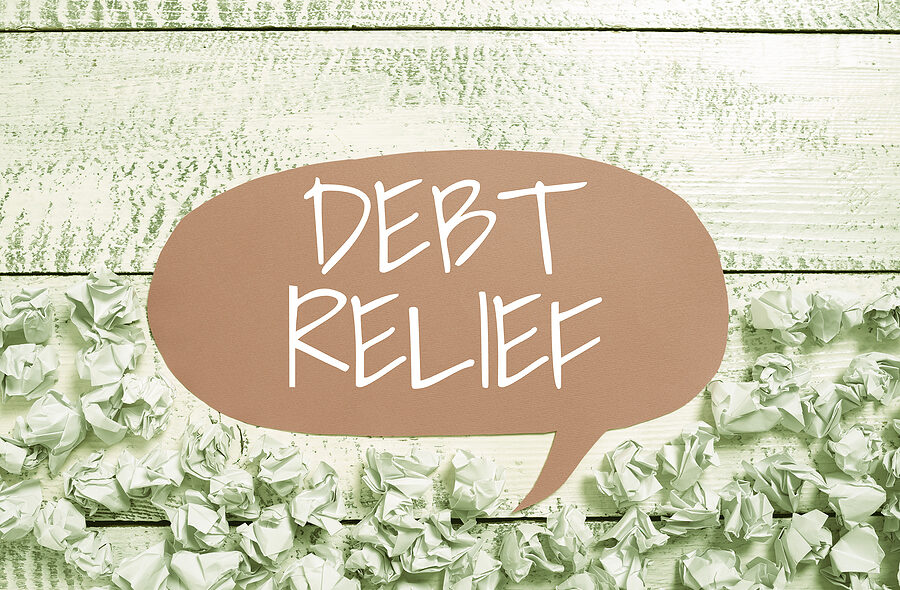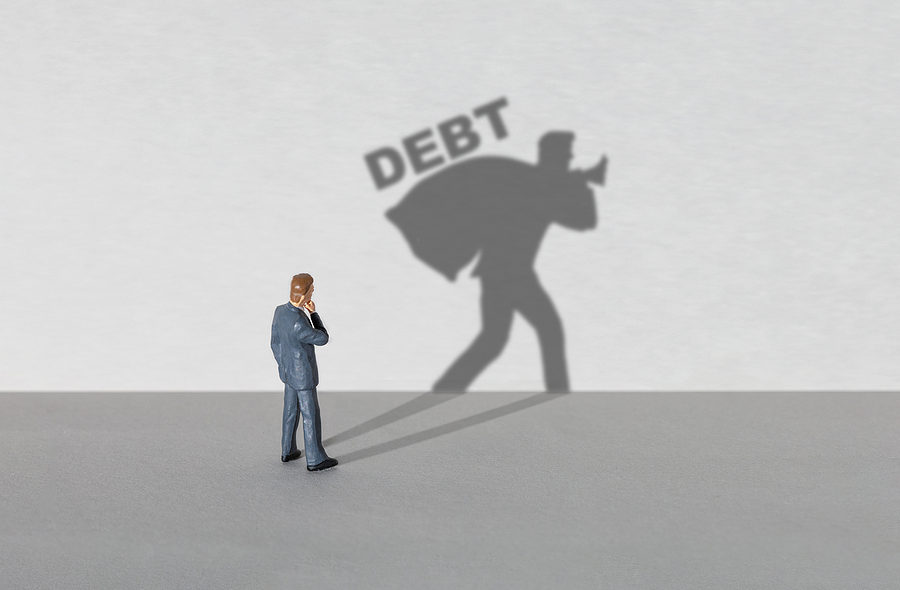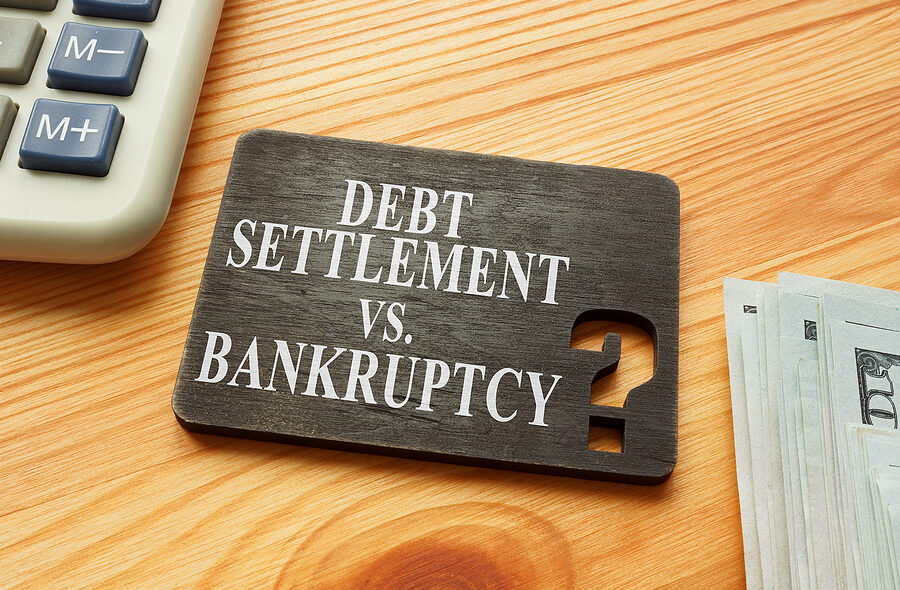The Federal Reserve increased its key rate by another quarter of a point, recently. This increase brought the rate to the highest level in 15 years. The increase was made in an effort to stave off inflation by making borrowing more expensive. However, this fed rate increase will affect consumer’s credit card bills.
Tag: Bankruptcy
Biden Administration to Make Process Easier to Have Debt Discharged in Bankruptcy
The road to having student loans forgiven in a bankruptcy case is certainly not an easy one, which is why so many borrowers forgo pursuing bankruptcy for fear that they will never be able to receive relief from their largest source of stress: their student loan debt. However, all of this could change very soon due to new guidelines issued by the Biden Administration.
In January 2023, the Justice Department updated the required attestation form that borrowers pursuing bankruptcy must complete before being able to seek a bankruptcy discharge of their federal student loan debt. The changes to the form include several modifications, including small changes as to how monthly household income is reported, instructions clarifying when a borrower needs to provide the court with additional information, and new questions looking for information on whether a school closure impacted the borrower’s ability to pay his or her student loans. The changes to guidelines also include more detailed information regarding the borrower’s student loan repayment history, including any consolidations made, deferments, or forbearances.
BANKRUPTCY ATTORNEY TIMOTHY S. KINGCADE RECEIVES THE PREEMINENT AV RATING FROM MARTINDALE-HUBBELL FOR 2023
MIAMI – Kingcade Garcia McMaken ( www.miamibankruptcy.com) is pleased to announce that Managing Shareholder, Timothy S. Kingcade has received the Preeminent AV Rating for 2023 from Martindale-Hubbell, joining a select group of lawyers recognized for their legal ability and professional ethical standards.

In addition, he has earned the Client Champion Platinum Award from Martindale-Hubbell for 2023. This honor is awarded to attorneys whose clients have acknowledged their exceptional communications ability, responsiveness, quality of service and cost value.
What Documents do you need to File Bankruptcy in Florida?
At the start of a bankruptcy case, the filer is asked to fill out certain documents, including disclosures regarding the person’s financial affairs. This disclosure includes the person’s income, expenses, assets, debts, and any property transfers.
The filer will also need to provide supporting documentation, and the documents required are essentially the same for both Chapter 7 and Chapter 13 cases, with slightly different variations. It is often helpful to check with the bankruptcy trustee to ensure that all required documentation is submitted. Some trustees require more proof than others, and many times, this evidence will also be determined by the facts of the individual’s case.
Understanding the Difference Between Bankruptcy and Debt Consolidation
When dealing with debt, there are different options consumers have available to them in terms of eliminating that debt. When it comes to debt consolidation and bankruptcy, it’s important to understand the differences between these two approaches, as well as the pros and cons of each.
Questions to Ask Yourself Before Filing for Bankruptcy
The decision to file for bankruptcy is never an easy one. It takes careful consideration and depends on a number of factors. Before making the decision to file for bankruptcy, ask yourself these questions.
Have All Other Options Been Exhausted?
Bankruptcy is not the only option when it comes to debt relief. It often helps to first meet with a bankruptcy attorney to discuss your options. A budget is one tool a consumer can use to see what unnecessary expenses can be eliminated, freeing up additional funds to pay off debts. The consumer may also have luck in selling some of his or her assets to pay off various debts. Another option is for the consumer to reach out to his or her lenders to see if some type of payment plan or debt settlement can be reached on the debt.
The consumer may also consider credit counseling. This step should be taken even if the consumer is considering filing for bankruptcy since credit counseling, including a two-hour financial management course from a government-approved agency, must be completed at least 180 days before a bankruptcy discharge is issued.
Does Bankruptcy Eliminate Tax Debt?
By the time an individual reaches the point of filing for bankruptcy, he or she is likely inundated with all types of consumer debt, ranging from medical debt to credit card debt and possibly, tax debt. While a consumer bankruptcy case will eliminate a large portion of this debt, tax debt is not normally included in this list.
Taxes fall into the category of “non-dischargeable priority debt,” which means that the bankruptcy case will not eliminate them. Additionally, repayment of these claims is given priority over other creditors’ claims. However, circumstances do exist where tax debt can be discharged with a bankruptcy filing, but certain requirements must exist before that can happen.
Survey Shows 1 in 5 Workers Run Out of Money Before Payday
As the cost of living rises and inflation is at an all-time high, many American households have been pushed to the brink. According to a recent study from Salary Finance, 1 in 5 workers cannot make it from paycheck to paycheck.
As the cost of living continues to rise, many Americans are finding themselves struggling to make ends meet. According to Salary Finance, approximately 20 percent of employees run out of money before their next paycheck. This is up five percent from the previous year.
Do I need a lawyer to file bankruptcy in Florida?
Filing for bankruptcy can be an uncertain and intimidating process. Going through it alone can make the process that much more daunting. While an attorney is not a requirement for filing for bankruptcy, it certainly helps ensure that a bankruptcy case proceeds smoothly.
A bankruptcy attorney will meet with the client first during a consultation to discuss the person’s financial situation to determine whether he or she needs to file for bankruptcy. Occasionally, it can be in the client’s best interest to wait before filing, but he or she may not realize that until talking through the situation with an attorney.
Should I Hire a Debt Relief Agency to Avoid Bankruptcy?
Consumers often resort to seeking the assistance of a debt relief company in an effort to avoid filing bankruptcy. However, hiring a third-party debt relief company is not always a wise decision for the consumer if bankruptcy is inevitable.
Some consumers decide to retain the services of a debt settlement company to negotiate payments on their outstanding debts. However, often the better option ends up being either having the consumer directly settle his or her debts without hiring another company or having the consumer move forward with filing for bankruptcy.
Debt settlement companies say they can work directly with the consumer’s creditors to settle their outstanding unsecured debts. In order to accomplish this, most debt settlement companies tell their clients to stop making payments on their debts, thereby pushing the debts into collections. The debt settlement company will then tell the consumer to pay them a monthly fee, which will be set aside into a savings account for future settlement of the person’s debts.
Unfortunately, there are many things a debt settlement company fails to tell the consumer when they are hired to negotiate the consumer’s debts. Ultimately, debt settlement is a business, and the company is looking out for their bottom line, not the consumer’s best interest, which is why so many debt relief scams exist.
First, while the debt settlement company is working on the consumer’s behalf, the total amount of debt will continue to grow thanks to interest accruing and fees being assessed when the consumer stops making payments. The consumer will also find his or her credit score taking a significant hit during this time since defaulting on a financial obligation is reflected poorly on someone’s credit report. Additionally, the creditor is under no obligation to work with the debt settlement company. They may be successful in settling a debt, the creditor is not obligated to take a settlement offer just because one is made. The creditor is always within their rights to pursue the full amount owed.
The consumer’s credit score will definitely be impacted by debt settlement. Essentially, entering debt settlement is an admission of the consumer not paying his or her debts as originally agreed. Additionally, the debt settlement will stay on the consumer’s credit report for seven years.
Ironically, debt settlement can also leave the consumer in an even worse situation than when he or she started, especially if the efforts to negotiate the debts are unsuccessful. For many consumers, going through debt settlement is essentially delaying the inevitable filing for bankruptcy. It is usually best for the consumer to first sit down with a bankruptcy attorney and analyze his or her situation to see which route is the best one to take.
Please click here and here to read more.
If you have questions on this topic or are in financial crisis and considering filing for bankruptcy, contact an experienced Miami bankruptcy attorney who can advise you of all of your options. As an experienced CPA as well as a proven bankruptcy lawyer, Timothy Kingcade knows how to help clients take full advantage of the bankruptcy laws to protect their assets and get successful results. Since 1996 Kingcade Garcia McMaken has been helping people from all walks of life build a better tomorrow. Our attorneys’ help thousands of people every year take advantage of their rights under bankruptcy protection to restart, rebuild and recover. The day you hire our firm, we will contact your creditors to stop the harassment. You can also find useful consumer information on the Kingcade Garcia McMaken website at www.miamibankruptcy.com.









